April 15, 2025 | 18:42 GMT +7
April 15, 2025 | 18:42 GMT +7
Hotline: 0913.378.918
April 15, 2025 | 18:42 GMT +7
Hotline: 0913.378.918
If look carefully you will see that the number of young people staying in the countryside to work in agriculture is relatively large. Many of them have professional qualifications and education, and they have devised many efficient agricultural startup models.
In the recent training course "Production, certification and trade of organic agricultural products" organized by Mekong Organics, the majority of participants were young people. They learn more methodical production models such as organic farming combined with agrotourism. Organic agriculture is very difficult to execute, but young people work hard, and start their businesses from organic agriculture. After many failures, many of them succeed.

Dr. Ngo Thi Thu Trang, Deputy Director of the Center for Rural Development - Saemaul Undong, University of Social Sciences and Humanities, Vietnam National University of Ho Chi Minh City.
Dear Dr. Trang, when we talk about young people performing agriculture, are they normally children of farmers returning to the fields, or young people of other occupations feeling disappointed with their current life and thus leaving the bustling city to come to the countryside?
I think most of them are children of farmers returning to the fields. It’s just not simply about dissatisfaction with urban life. There are young people who truly have the enthusiasm and passion for agriculture. And perhaps it is thanks to the heightening role of the Ministry of Agriculture and Rural Development as well as activities in agriculture and rural areas having quite positive changes in recent times.
During my teaching at the university, I also often tell students that if they feel capable and passionate about agriculture and want to develop rural areas, just return. Opportunities are abundant there, waiting for them to show their abilities and mark their contributions to changing the villages into a place worth living.
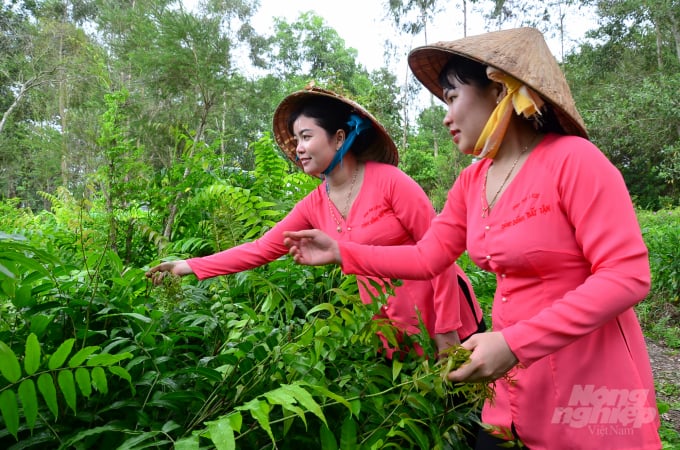
Picking wild vegetables at Endless Fields Tourism Area in Moc Hoa district, Long An province. Photo: Duong Dinh Tuong.
After reading newspapers, listening to the radio or watching television about agricultural models, many young people, especially in the city, start to have dreams, leave the city to go to the countryside and the forest, but then most of them leave the place and returned to the city. What is your view of that story?
That reality exists. Farming is not easy, and doing it with the correct methods while keeping the passion for clean and sustainable agriculture is even harder. There are groups of young people from urban areas going to the countryside to work in agriculture, then return to the city and continue working as before. It is possible that a part of them did not have a clear direction from the beginning. Encountering tons of obstacles in starting a business in agriculture and building a property in the countryside soon lead them to discouragement.
But in my opinion, that rate is not high. It mainly belongs to the group that is dissatisfied with urban life and returning to their hometowns like the recent Covid-19 epidemic which has caused a huge flow of migrants from Ho Chi Minh City to the countryside, and then they go back to the city when the situation is improved.
As for the second group, young people who have a clear life plan and start-up program from the beginning, when they return to the countryside, they can hold on for a long time. They are usually rural children or students studying agriculture and rural majors, or even related fields such as tourism, anthropology, geography, and culture.
To give a general view, the rural picture has more pink than grey because there is a new wind from young people who bring knowledge to the countryside with good and successful startup models. They can work as farmers, scientists, and businessmen at the same time, and all of these factors are what creates success for agriculture and rural areas.
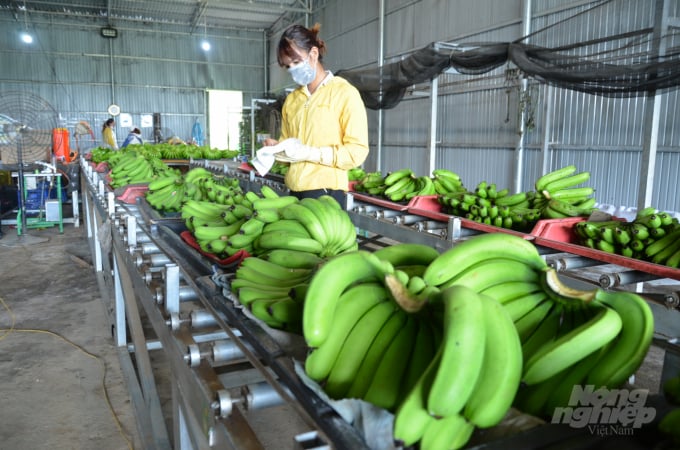
Stamping on bananas for export at Da K'Nang Laba Banana Cooperative (Dam Rong district, Lam Dong province). Photo: Duong Dinh Tuong.
The intellectual level of people in the West has shown signs of improvement in recent years. Are they learning by themselves or are there other reasons for these changes, ma’am?
It depends. People in difficult and remote areas do not have access to new knowledge or have access but gain low educational level, unable to make a breakthrough in research or take the initiative in learning to improve their capability.
However, in urban and near-urban areas, such as tourist locations in the West, people are very eager to learn. Farmers are scientists inventing production tools, biological pesticides and machinery in service of production and processing. Farmers are entrepreneurs when they actively search and connect with the market. Farmers are weather forecasters using indigenous knowledge, “know the rain by looking at clouds, know the sun by looking at the sky”. They become true experts in their own field.

Growing hydroponic vegetables. Photo: Duong Dinh Tuong.
Dear ma’am, having such a signature culture, what are the advantages and disadvantages of the West in raising people’s awareness?
It depends on the locality. Each different subject shows different levels of will to strive for better in life and raise awareness in production.
The Southwest region used to have favorable natural conditions with fertile alluvium from rivers. Agriculture in this land flourished with an abundance of fish and shrimp. People worked for fun and earned meager profit which resulted in some kind of weight within themselves. Some people felt that their life was enough, there is no need to try hard anymore. Or there are cases in remote areas in which awareness of the people has not been enhanced, causing them to live dependent on nature.
But now farmers have become more active in raising awareness in production to adapt to the nature and environment specifically the saline intrusion phenomenon in recent years. When coming to Sa Dec flower village in Dong Thap province, you can see that farmers who grow ornamental flowers and ornamental plants are very active in doing business. They integrate tourism into agriculture, thus promoting both areas. They develop, work together and come to an agreement on the management mechanism, find their own direction, and look for consultants like us themselves to ask about how to do things properly.
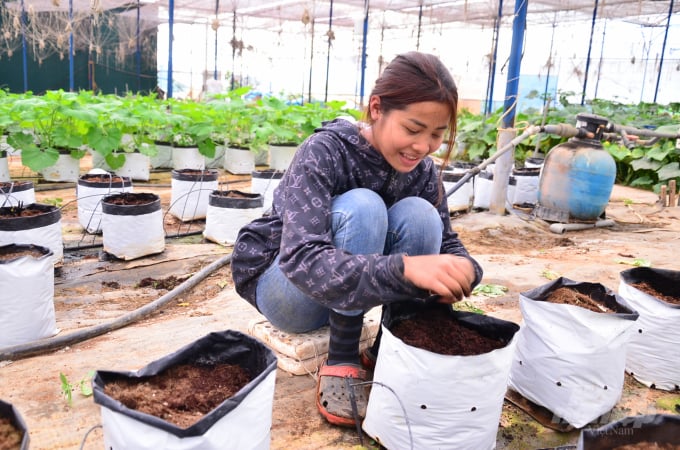
Prepare pots to transplant seedlings. Photo: Duong Dinh Tuong.
Current media contributes partly to the illusion of success in agriculture by only stating the successful models without mentioning the failures. The lessons of success are important, but sometimes the lessons of failure are even more important. What do you think about this matter?
I think the important role of media is clear. For an agro-product struggling in consumption, just one or two articles strongly swirling about that issue in a negative way will make the situation fall into a much worse state.
We cannot see everything through “the path of rose”. If there are lessons of success, there must also be lessons of failures so that people can make a careful judgment. Writing about failures is not to let others give up or to discourage them, but to show them that from that failure there will be successes later. As for successful models, there must exist prior failures, especially in organic agriculture.
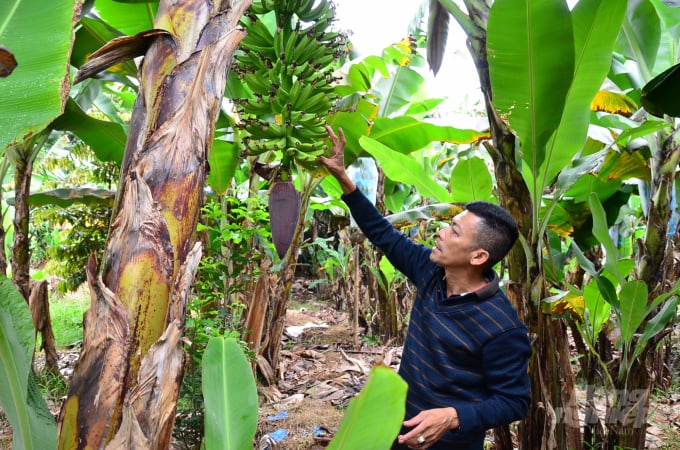
Examining the newly-bloomed banana bunch at Da K'Nang Laba Banana Cooperative (Dam Rong district, Lam Dong province). Photo: Duong Dinh Tuong.
Having experienced the learning environment in France, do you find that the way their farmers gain knowledge is mainly by themselves, the agricultural industry, institutes, schools or are there other sources?
The young generation of farmers in France today see agriculture as a profession that requires as much skill as any other. Farmers have to plan the land for planting, calculate the amount of fertilizers and pesticides, chose to grow or raise what crop to bring the most profit. They are constantly learning on their own.
Ordinary French people also support their farmers, for example, instead of buying Spanish carrots for a quarter of the price, they buy French carrots. But in order to achieve this feat farmers must constantly strive to create credibility so that consumers feel completely confident about the quality and safety of domestic agro-products.
Vietnam’s farmers must raise their credibility to respond to the supportive mindset of consumers as consumers are still afraid of an invisible fear. They don’t know whether the products are real or fake, and the products contain chemicals. In general, the market is still a mess, unable to create absolute trust among consumers.
Some businesses are currently focusing on the brand recognition segment so that whenever consumers mention the product they will remember the quality. So the story of providing more knowledge to farmers in the near future is not about “I am good at production” but “I am good at doing brand recognition”. In Dong Thap there is a farmer with a love for his homeland called Uncle Huong of Huong Sen Dong Thap Company. He is trying to build a brand for lotus, and he's doing it very well. There are many lotus products on the market, but his products pay real attention to quality. Research has been done, so the product quality is no doubt high.
What I want to say is that we must improve knowledge for farmers so that at some point they consider the products as their brainchild and standardize it. That’s when success will knock on their door.
Thank you, ma’am!
Translated by Samuel Pham
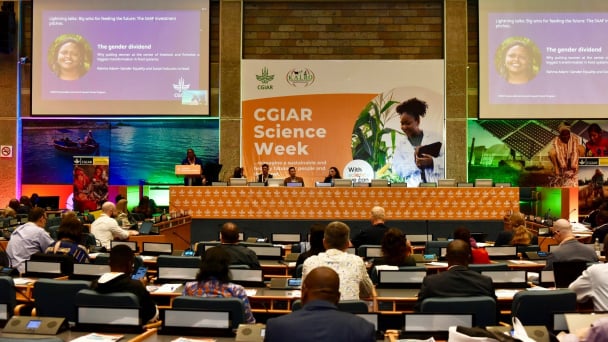
(VAN) The CGIAR’s Sustainable Animal and Aquatic Foods (SAAF) program represents a new approach that emphasizes the transformation of food systems toward sustainability.
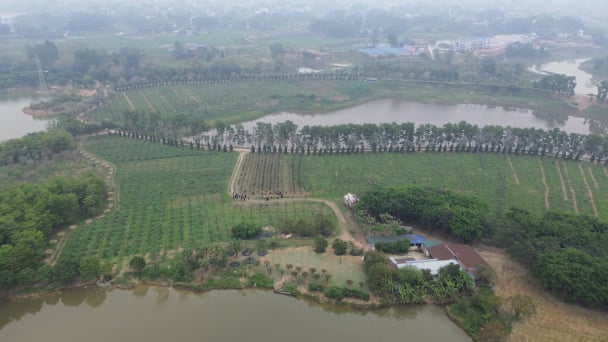
(VAN) Scientists assume that industrial agriculture has been 'outdated.' As a result, a comprehensive overhaul or a revolution in the direction of embracing ecological agriculture is needed.
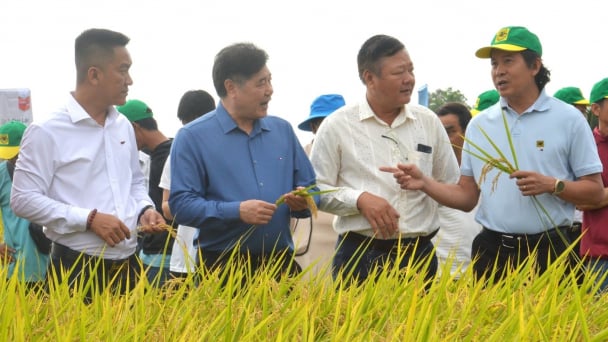
(VAN) The results from pilot fields are catalyzing the expansion of the One million hectares of high-quality, low-emission rice project in Kien Giang.
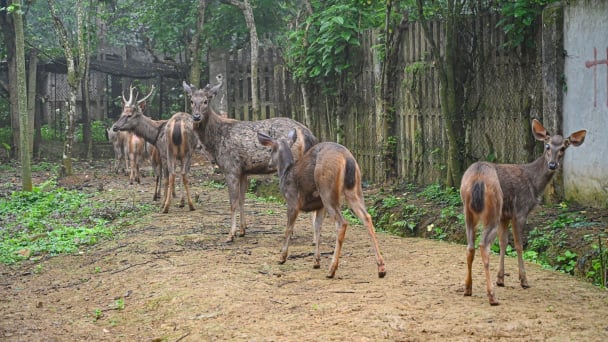
(VAN) On the morning of April 11, Cuc Phuong National Park received 18 individuals of endangered and rare wild animals from Da Nang city.
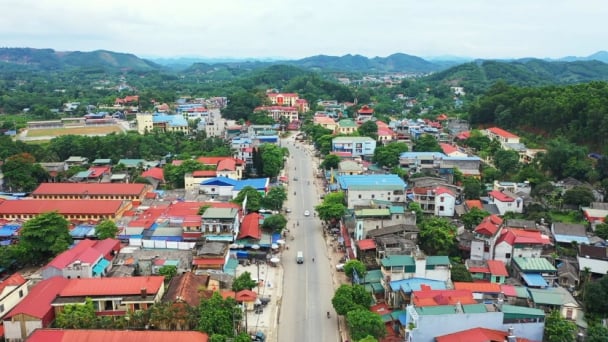
(VAN) FAO supports Vietnam in enhancing survey sampling techniques for the 2025 nationwide agricultural and rural census.

(VAN) By participating in the green transition, manufacturers become an indispensable part of the circular economy, contributing to resource optimization and environmental protection.
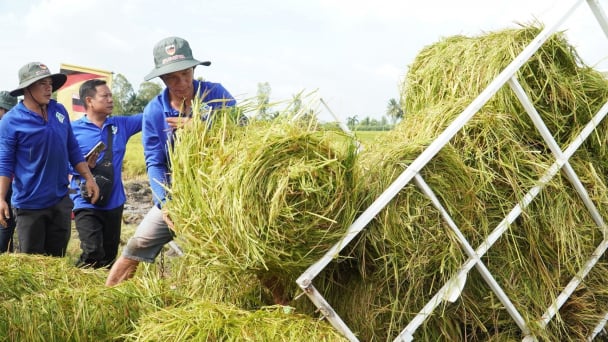
(VAN) The One Million Hectares of High-Quality and Low-Emission Rice Program can generate nearly 14 million tons of straw annually, posing an urgent requirement to diversify straw-based products.